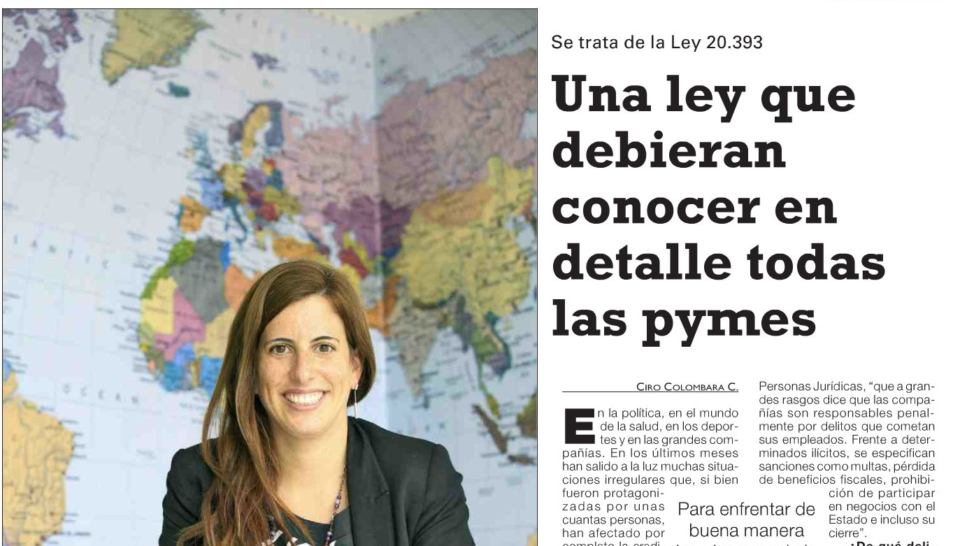
This article first appeared in LUN on January 11, 2016.
To face the scope of the standard in a good way, companies must generate prevention models.
In politics, in the world of health, in sports, and large companies. In recent months, many irregular situations have come to light which, although they were committed by a few people, have completely affected the credibility of these areas and companies in the eyes of the public.
This is undoubtedly something very sensitive and delicate, to which even SMEs are exposed not only through a moral sanction but also through a legal sanction since there are certain offenses for which they must answer as a company. Susana Sierra, commercial manager of BH Compliance, explains that at the end of 2009 the Law on Criminal Liability of Legal Entities came into force in the country, “which broadly states that companies are criminally liable for crimes committed by their employees. In the case of certain offenses, sanctions are specified such as fines, loss of tax benefits, prohibition to participate in business with the State and even their closure”.
-What offenses are we talking about?
-There are three. Money laundering, bribery, and financing of terrorism. Although the first one is associated with drug trafficking, it is much more than that, since it refers to cleaning black money by any means and can affect an SME in the case, for example, that a client uses it to launder his money with something as simple as renting premises. Although the SME may not be aware that it is doing something illegal, it is still punished. That is why it is so important to have certain controls, very clear processes within the company to prevent being involved in these illicit activities. That is the work we do as BH Compliance, to generate a crime prevention model.
Susana Sierra explains that the first part of their work is to review all the formal procedures that companies have and see if they are effective. At the same time, they create other controls. “Small businessmen sometimes get scared and think that these are very complicated things and it is not so many times it is enough to generate strategies such as establishing a channel for reporting irregular situations, training workers to know in detail the rules or codes of ethics of the company or perhaps have employees sign a conflict of interest declarations”.
The commercial manager of BH Compliance ( http://www.bhcompliance.cl) adds that SMEs must become aware of the risks to which they are exposed. “It may seem to them that implementing a prevention model is for large companies, but that is not the case. The issue of bribery, for example, is very sensitive for companies of any size because there is constant contact with Internal Taxes, as well as with municipalities or health seremis for the issue of commercial patents or sanitary permits and someone may be tempted to offer money to public officials to obtain those permits.”
**
2009
That year the Law of Criminal Responsibility of Legal Entities came into force.
“Any company can be involved in a situation such as bribery”, Susana Sierra.
Certification is a great help for companies
The work carried out by BH Compliance lasts, on average, three months. “In the case of an SME it may be less, it all depends on the number of employees a company has because we operate mainly on people. At the end of our work we deliver a certification, which says that the models adopted by the company mitigate the possible risks it may face in the event of one of the crimes established by Law 20.393”, says Susana Sierra.
-How long is this certification valid for?
-It is valid for two years. Now, we do a kind of follow-up or control after six months.












